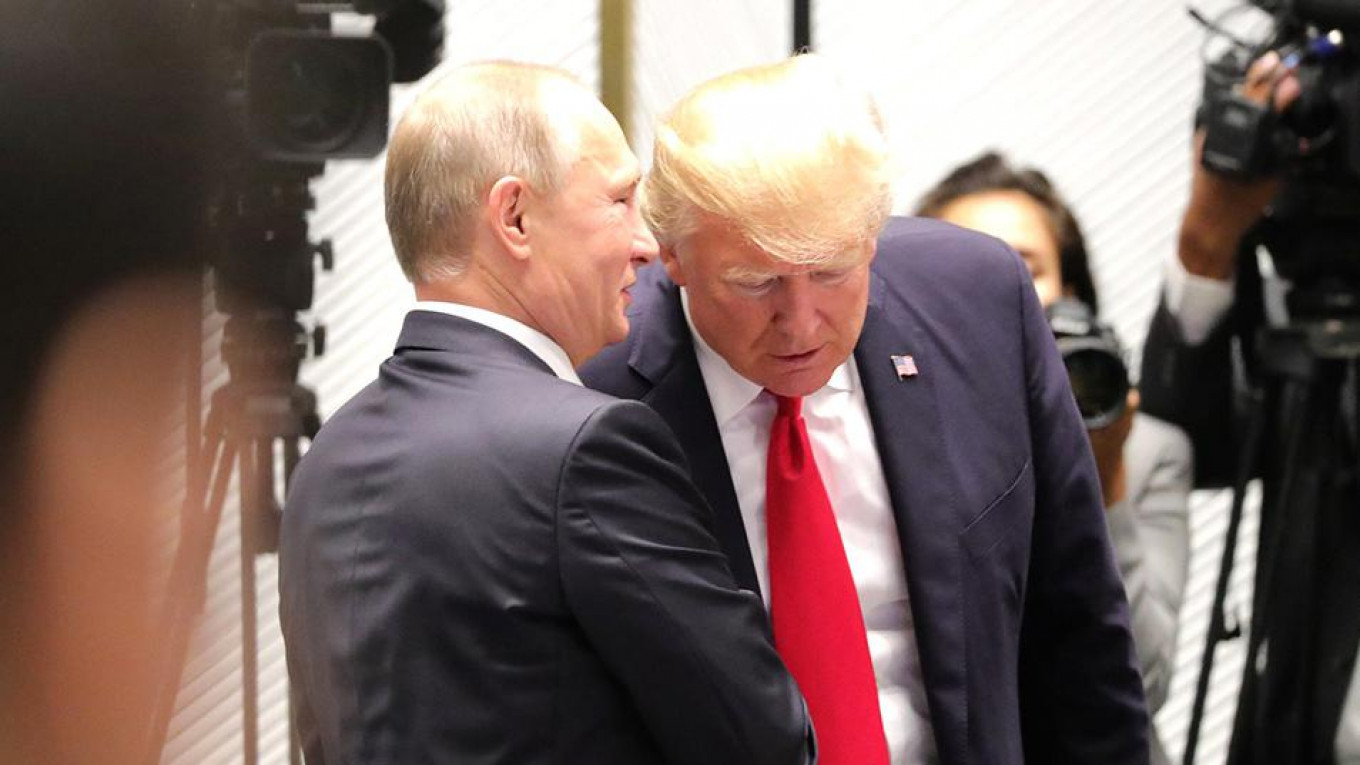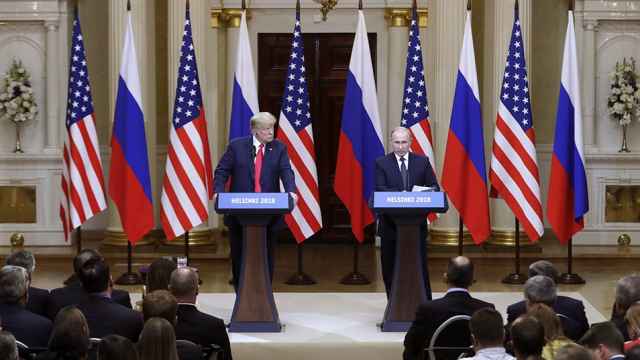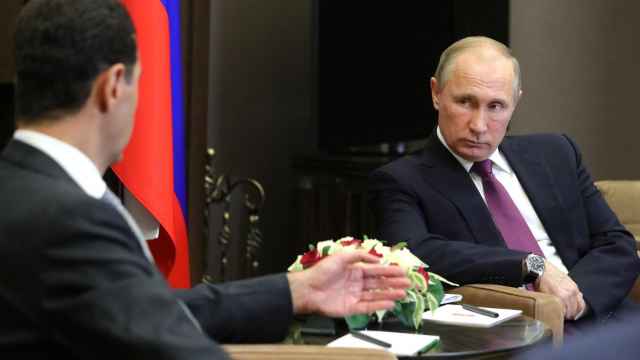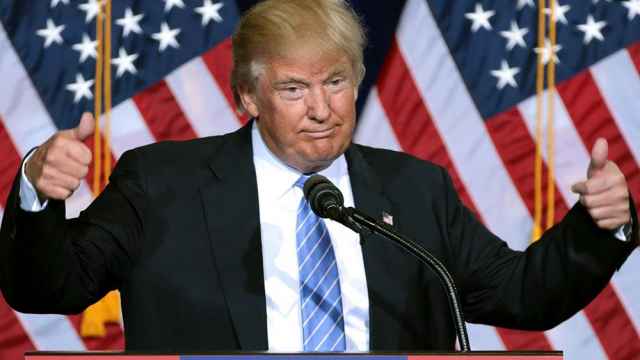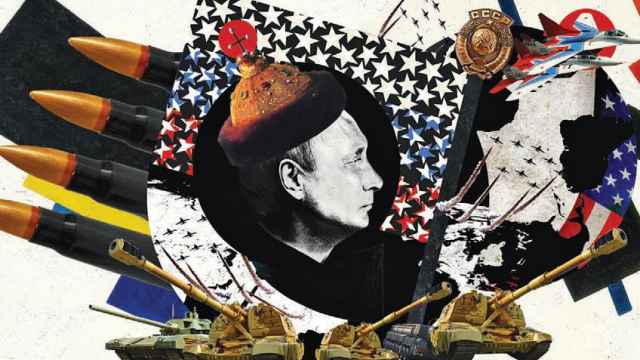A looming confrontation between Russia and the U.S. in Syria is a long overdue escalation of the Syrian conflict that has been brewing for months.
Decisive gains on the ground by the Syrian government that resulted in Vladimir Putin’s declaration of victory in December 2017 may have reflected the outcome of the war against the Islamic State. But it did not match a far more complex reality on the ground.
While some terrorist groups have been eradicated and others are in survival mode, the emergence of a number of externally backed state-like structures in the country is threatening Russia’s idea of a unified Syria. In other words, while the war in Syria is almost over, the fight of international powers over Syria is only just beginning.
It is a sign of the times that the alleged Douma chemical attack may lead to direct confrontation between Russia and the U.S. in Syria. Despite warnings from both sides that a clash between Moscow and Washington should be avoided at all costs, Syria has created a new reality where even the smallest dispute involving the two global powers risks spiraling into a full-on war.
In Syria, both Russia and the U.S. are hostage to their own global power status.
For the United States, it is an echo of its global responsibility strategy, which Donald Trump is desperately trying to review. For Russia, walking a tightrope in Syria is a byproduct of its ambition to reemerge as a status quo power.
Unlike Washington, Moscow doesn’t have any good options when it comes to handling the Douma chemical attack. At this point the debate is no longer about whether Assad is the perpetrator of the attack, which the world community seems to have accepted as a fact and Russia continues to question, but about how far-reaching the consequences of this act are going to be.
It is safe to say that by now the United States has succeeded in rallying international support for military response to the Eastern Ghouta attack and Russia does not expect that Donald Trump would renege on his decision to act.
But what matters to Moscow most, is that whatever response Trump opts for, it should be a contained and isolated effort that doesn’t bear the features of an all-Syria campaign benefitting American partners, Kurds and Israel.
Israel’s own attempts to capitalize on the Douma incident and its voluntary involvement in responding to it further complicate the situation for Moscow, because clashing with Israel is something that Russia wants to avoid at all costs.
If the 2017 Khan Sheikhoun attack is anything to go by, the Pentagon may indeed come up with a carefully calculated response. Back in April last year, the United States retaliated against the alleged Syrian attack with strikes against the Shayrat base. In the end, Moscow managed to use the attack to make it clear to Assad that he was no longer safe, forcing him to be more cooperative.
This time around, Trump is faced with another dilemma, which is the ineffectiveness of strikes as a deterrent against further use of chemical weapons. If he really wants to bring the message home to Russia and Damascus, Trump would need to come up with measures that really hurt the Assad government. But those same measures are likely to risk an escalation with Russia.
Moscow, on the other hand, needs to make up its mind how serious it takes Trump’s threats and how far it should go to shield the Syrian military infrastructure. Allowing the United States even a few targeted strikes sends a wrong message to partners and opponents alike.
April 2018 is no April 2017. Another American strike against Assad is no longer interpreted as blowing off steam. Against the backdrop of recent Israeli strikes and American strikes in Deir Ezzor that reportedly left dozens of Russians dead, a lack of retaliation from Russia and Syria this time will be condoning U.S. behavior and inviting even more pressure.
Intercepting U.S. strikes in Syria — while it is possible — is no less challenging for Moscow. The risk of escalation is always there, but given the likely contained nature of the attack, this is probably not what bothers Vladimir Putin. A transition of the conflict from a Syrian war to a war over Syria is far more dangerous at this point.
We have seen plenty of examples of how Russian and American forces came to help their allies on the battlefield, but there is no precedence for the two powers clashing directly with each other.
While neither country’s leader really needs this showdown in Syria, they risk unlocking an option that so far has been considered off the table in both capitals.
Yuri Barmin is a researcher on the Middle East and Russia's policy towards the region and an expert at the Russian International Affairs Council.
The views and opinions expressed in opinion pieces do not necessarily reflect the position of The Moscow Times.
A Message from The Moscow Times:
Dear readers,
We are facing unprecedented challenges. Russia's Prosecutor General's Office has designated The Moscow Times as an "undesirable" organization, criminalizing our work and putting our staff at risk of prosecution. This follows our earlier unjust labeling as a "foreign agent."
These actions are direct attempts to silence independent journalism in Russia. The authorities claim our work "discredits the decisions of the Russian leadership." We see things differently: we strive to provide accurate, unbiased reporting on Russia.
We, the journalists of The Moscow Times, refuse to be silenced. But to continue our work, we need your help.
Your support, no matter how small, makes a world of difference. If you can, please support us monthly starting from just $2. It's quick to set up, and every contribution makes a significant impact.
By supporting The Moscow Times, you're defending open, independent journalism in the face of repression. Thank you for standing with us.
Remind me later.



